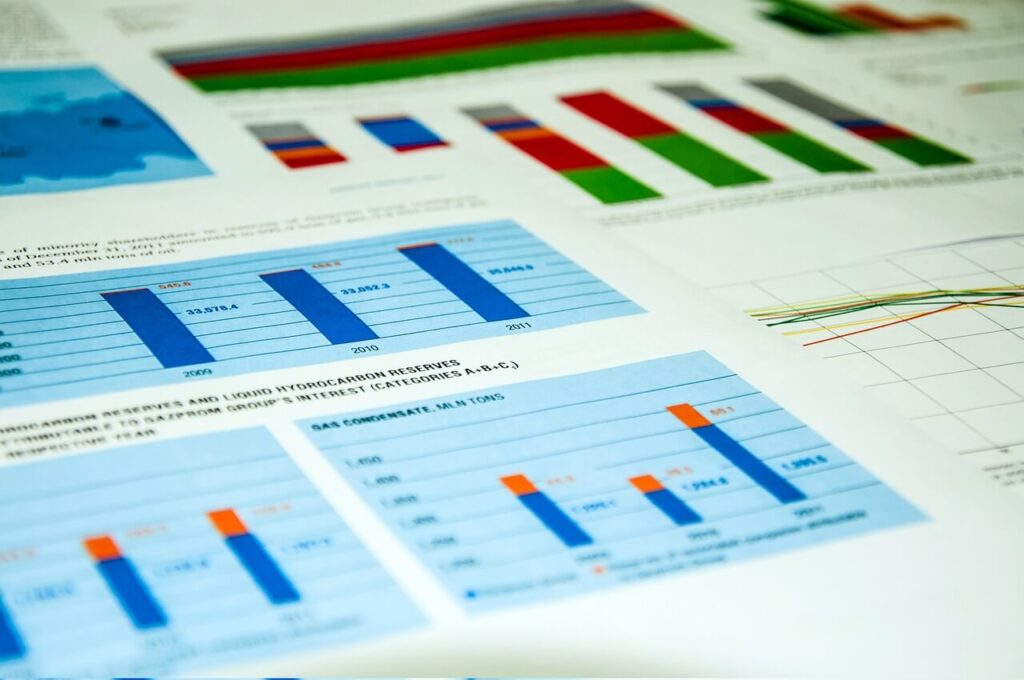The Latest Trends in Financial Reporting Solutions

Introduction Financial Reporting Solutions
Financial reporting solutions serve as indispensable tools that help organizations effectively manage their financial information methodically and efficiently.
These solutions are fortified with a comprehensive set of features that facilitate the compilation, analysis, and presentation of financial information, enabling businesses to create accurate reports promptly, which in turn helps them to make informed decisions with greater speed and confidence.
Best financial reporting solutions can also assist with forecasting future trends and budget planning, thereby allowing businesses to gain better insight into their finances and make more informed decisions about managing them in the future.

The benefits of financial reporting solutions are manifold and include streamlined data processing, improved accuracy and transparency, enhanced auditing processes, and increased efficiency, and reduced costs.
With the ever-increasing popularity of these solutions across businesses of all sizes, it is no wonder the best financial reporting solutions are being widely adopted to streamline data processing, improve accuracy and transparency, enhance auditing processes, and reduce costs.
Streamlined Data Processing
Financial reporting solutions offer businesses a seamless way of processing their financial data by leveraging automation to perform various tasks such as entering invoices into the system or uploading bank statements directly into the platform.

This helps businesses save time and money while ensuring accuracy. Furthermore, automated systems can quickly detect errors or anomalies that require additional attention, thus preventing costly mistakes or delays in reporting financial data accurately.
Read Also: Complete Guide Commercial Mortgage Truerate Services in 2023
Improved Accuracy and Transparency
Financial reporting solutions help improve accuracy and transparency by allowing users to compare different reports side-by-side, making it easier to spot any discrepancies between two sets of numbers that could lead to costly errors or inaccuracies in reports sent out by the business.
Additionally, these platforms allow users to quickly adjust reports if needed without having to manually enter each change individually, saving time and effort for everyone involved.
Enhanced Auditing Processes
Auditors often rely on financial reporting systems when examining a business’s books to ensure accurate records are kept at all times.
There are two main types of financial reporting solutions: cloud-based solutions and on-premise software solutions. When selecting a financial reporting solution, companies must take into account their size, budget, and requirements to determine which type of solution is best suited for their needs.
Cloud-Based Solutions
Cloud-based solutions offer subscription models for businesses to access hosted applications over the internet without needing to install software or hardware onsite.
This makes it a great choice for small businesses with limited IT resources as these services are usually relatively inexpensive compared to traditional software installs and require minimal technical expertise to maintain.
Cloud services also make it easier for teams to access data in real time from anywhere with an internet connection, which can help improve collaboration between departments when creating reports.
On-Premise Software Solutions
On-premise software provides an all-in-one solution that companies can install on their servers to create detailed financial reports while keeping sensitive data secure.
When selecting a financial reporting solution, companies must consider various factors that will affect the success of the implementation, such as cost and scalability, security features, integration capabilities, reporting functionality, user interface, and customer support.
It is important to not only consider initial costs but also ongoing maintenance fees and other associated expenses over time. Additionally, scalability should be taken into account when making your decision – find out if the solution can grow with your company’s needs or if you’ll need to invest in additional systems or upgrades for it to remain effective over time.
Security is paramount when it comes to financial data. Therefore, companies should ensure that their chosen solution includes robust security features such as access control processes, encryption protocols, and identity verification methods to protect sensitive information from malicious actors or accidental mistakes.
Conclusion
Financial reporting solutions are essential for businesses of all sizes, as they enable organizations to make informed decisions and remain compliant with the latest regulations. By leveraging automated processes, they can save businesses time and money while providing reliable information that is critical for long-term success.
